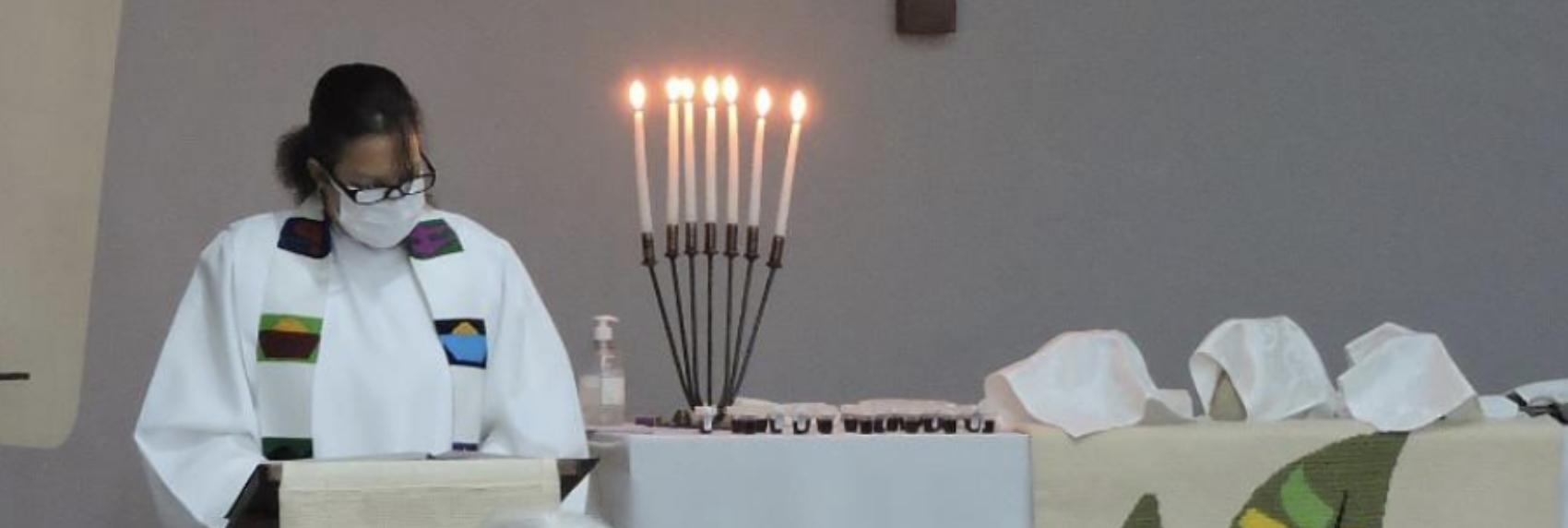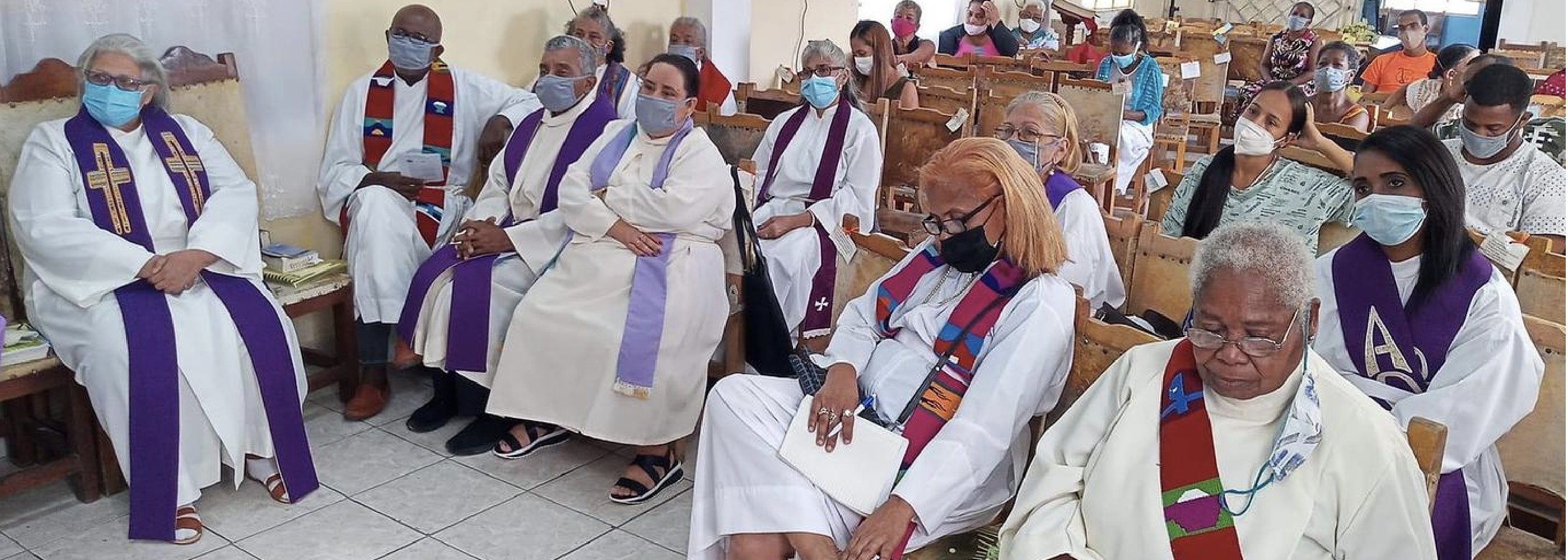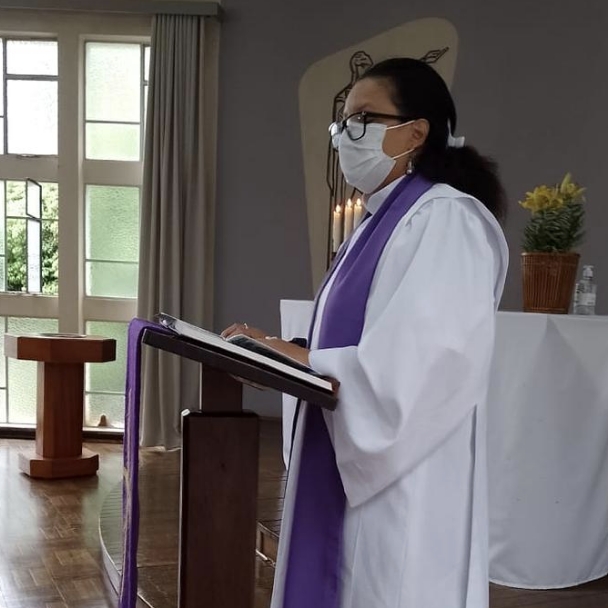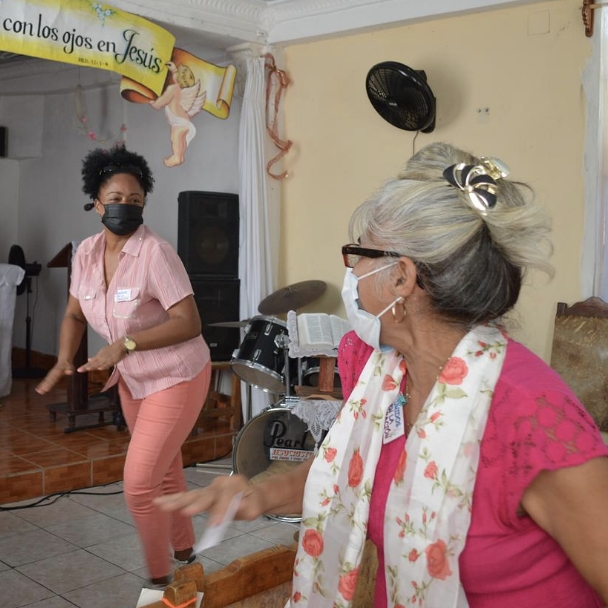A Blessing for Pastor and a Church
Yamilka Hernández Guzmán always loved education and had a talent for teaching. A psychologist in an oncology hospital in Cuba, she looked for answers to the daily struggle for life she witnessed. A patient suggested to her that knowing Jesus might help, and a friend who attended a nearby Lutheran church invited Hernández Guzman to join her at worship. Shortly thereafter, the congregation’s pastor asked Hernández Guzman to lend her teaching talents to a youth ministry.
The United Evangelical Church in Cuba Lutheran Synod (IEU-SL) joined the Lutheran World Federation in 2018, and because Cuba lacks an immigrant Lutheran tradition, the church relies on bivocational leaders, lay and rostered, to maintain an education system that can teach the church’s 1,500 members the how’s and why’s of a Lutheran life.

“It’s attractive to people because Lutheranism was very unknown for years, and now we characterize ourselves as being an alive, very charismatic church, especially with our liturgy,” said Martha Romero, an IEU-SL pastor. “All of our liturgy is with the sacred songs of our culture, and that motivates people. When we invite them to church and they come, these characteristics of our church calls their attention.”
IEU-SL Bishop Virgen Laborde Figuera said, “Our congregations are pillars where they exist. All of the people around them can count on them in any situation that each family—each person—has with sickness or any other problem. We, with the little resources that we have, put ourselves at the disposal of our communities.”
Though teaching children seemed like a big task for a new member, Hernández Guzmán tackled it and then started teaching adults at the church’s informal seminary. “I have a talent,” she said. “At least, I think it’s a talent—to teach people that don’t have a high level of education or training. However, with me, they learn the Bible and theology. I led people through studies at seminary, people that I think no institution would have considered. They learned and learned. And wherever I went, people always called me to teach.”
Eventually Hernández Guzmán was called to serve as pastor of a congregation, but she still loves educating the church’s leaders. In 2019 a scholarship from the ELCA’s International Leadership Development Program allowed her to pursue doctoral studies at Faculdades EST, a Lutheran seminary in Brazil. Because of your Mission Support dollars, the ELCA is able to support the education of leaders such as Hernández Guzmán.

The International Women Leaders program was founded to enhance the missional capacity of our global church. Our companion churches raise up talented people to pursue advanced degrees that the ELCA finances. Once they complete their studies, students return to their home churches better equipped to serve and lead.
Hernández Guzmán is working to formalize theological education at the IEU-SL school. Thus far it has empowered church leaders to create a liturgy blending Lutheran and Cuban traditions. However, it needs someone with a doctorate to establish a program of studies that will train leaders at a higher level.
“We’re thankful to the ELCA for giving us the scholarship so our sister Yamilka can become a doctor,” Romero said. “Our seminary needs this to reach a higher level, and when she returns, the pastors are in agreement to take [the seminary to] this higher level. Our seminary, even though it is small, is big in education.”

Now leaders such as Romero Radames can look forward to more educational support for their ministry. Hernández Guzmán sees in this an opportunity to train leaders more effectively and open the church up to new possibilities.

